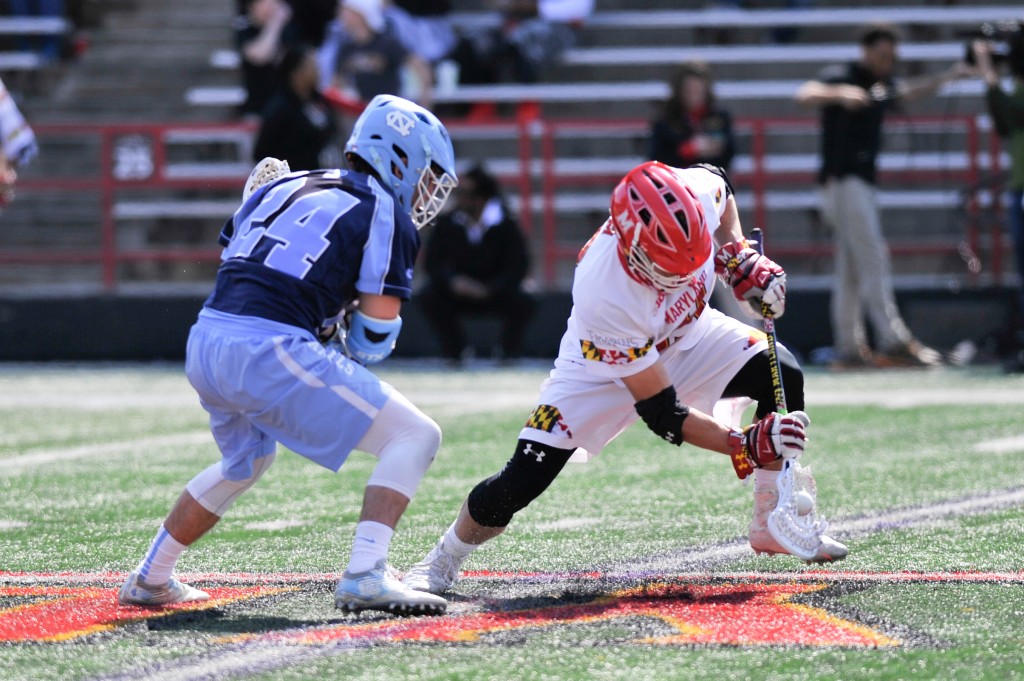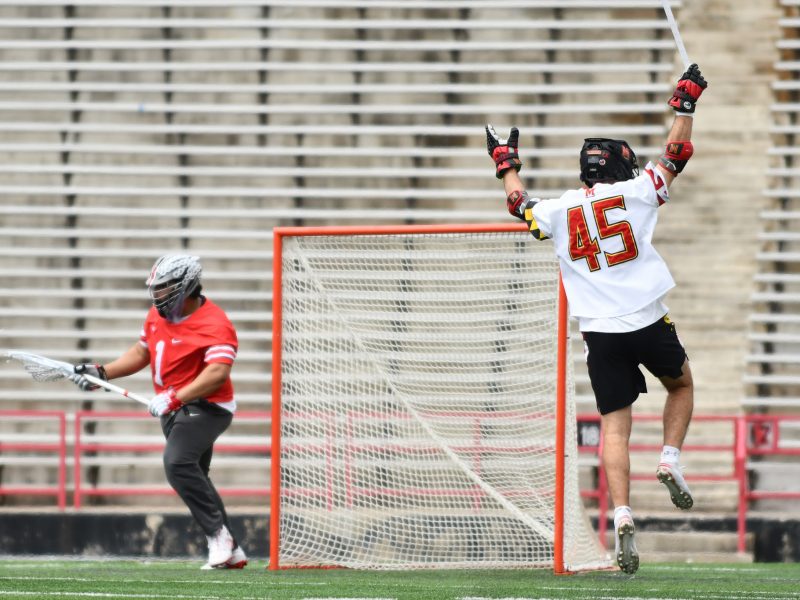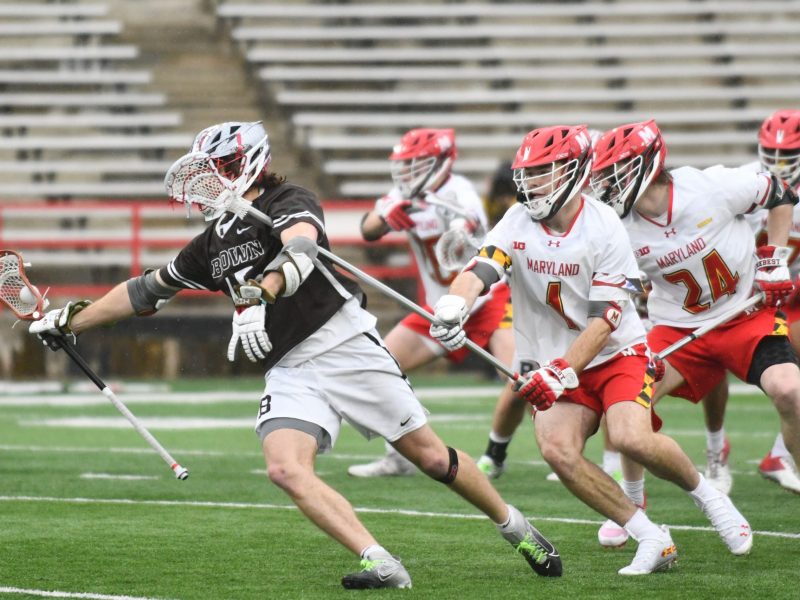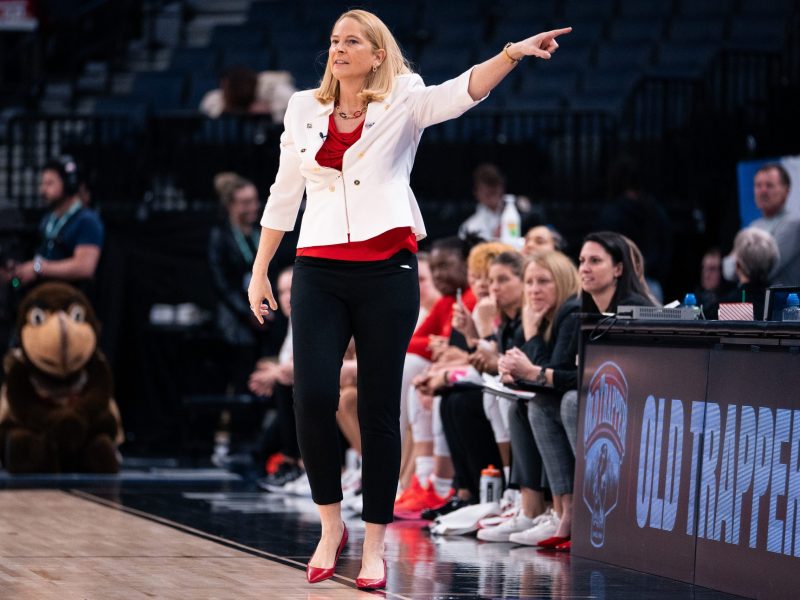After Curtis Corley broke his collarbone his freshman season, the Maryland men’s lacrosse defender learned the recovery process could involve a high-risk procedure.
The bone needed to be reconstructed, and the orthopedic surgeon took several minutes to review treatment plans. Because the break was so bad, the surgeon recommended inserting a plate that would allow the bone to heal, then removing it afterward. Doctors were unsure how long they would need to leave the plate on the bone; the procedure might delay Corley’s return to the field.
Corley ultimately elected to undergo the procedure and the months of physical therapy that followed. He observed how detail-oriented the doctor was, and he admired the doctor’s point that he would likely be stronger after surgery.
The process made Corley realize he might enjoy the challenge of fixing things. So, after overcoming the injury, Corley aspired to become an orthopedic surgeon.
The Medford Lakes, New Jersey, native took a step toward obtaining his dream job in August. As part of the Terps’ mentorship program, which links lacrosse alumni with current players to provide shadowing and internship opportunities,
Corley spent three days in Seattle shadowing Dr. Gregory Komenda. A connection through alumnus Bob Holland enabled Corley to learn the fundamentals of the job.
Corley’s experience is an example of how Terps alumni have helped current men’s lacrosse players prepare for post-graduate careers.
“On the day kids get here, we want them to realize four years flies by and you’ve really got to think about your future early,” coach John Tillman said. “You can’t just snap your fingers as a senior and expect a job to be there.”
Corley spent a week in Seattle with Holland, working with the high school team that Holland coaches and local players during clinics. He was assigned Holland as a mentor based on his career interests and was linked with Komenda, whose son plays lacrosse at Denver.
Six months before his trip, Corley received vaccines and filled out paperwork that enabled him to shadow surgeons in the operating room. He spent three days working with Komenda and his colleagues, observing a different situation on each occasion.
Corley watched Komenda, who works at Proliance Orthopaedics and Sports Medicine, on his first day and viewed several outpatient procedures on the second. Multiple cases intrigued Corley, because his teammates have suffered comparable injuries. He also witnessed more extensive surgeries and learned how a sports medicine clinic operates.
Holland arranged dinner with Komenda, so Corley could further develop his relationship with the surgeon.
“[Holland] talked to me and said, ‘This is an experience you’re lucky to get. It’s either going to be eye-opening that you want to do it or eye-opening that you don’t. It will make you push harder if you want to do it,'” Corley said.
Faceoff specialist Austin Henningsen had the latter experience.
Henningsen said he wanted to learn more about commercial real estate, so Holland connected him with executives at the firm Kidder Matthews. Through shadowing opportunities, Henningsen learned about the real estate group’s operational procedure and the brokerage aspect. Both experiences were different from what he thought they would be, and he left thinking about alternative careers.
“A lot of student-athletes graduate from college not knowing what they’re going to do next,” Holland said. “My attitude is, there has to be an alum who has come through the lacrosse program working in an industry at a high level who can connect with a player in virtually anything.”
Holland was among the first to get involved with the mentorship program about nine years ago, when he worked at General Electric Healthcare. He spoke to the team and identified students who might be interested in an internship while also discussing how to prepare for interviews. However, because of the internship requirements, only about 10 percent of the team was eligible, Holland said.
When Tillman took over the program in 2011, he wanted to engage the program’s alumni. The mentorship program was one of his ideas.
Now, with alumnus Chris Passavia at the helm, the program has a clear structure.
The alumni work with Tillman and the coaching staff to learn more about each player’s interest. The former players created a list of graduates working in different fields, organized by industry and location, to simplify the matching process.
Passavia also helped execute a speaker series, where alumni such as Holland discuss their career paths, often during the offseason. Speakers visit campus or Skype into meetings, establishing networking opportunities for current players.
The strategy has produced successes beyond Corley and Henningsen.
Former Maryland defender Matt Dunn earned an internship at J.P. Morgan through lacrosse contacts, and former Terps attackman Dave Goodwin received a local opportunity at what Passavia called a “major” construction firm. Senior faceoff specialist Will Bonaparte secured a position on Capitol Hill last summer. Attackman Louis Dubick will be working at Goldman Sachs this summer.
Still, the alumni aren’t complacent, striving to create additional resources and opportunities.



